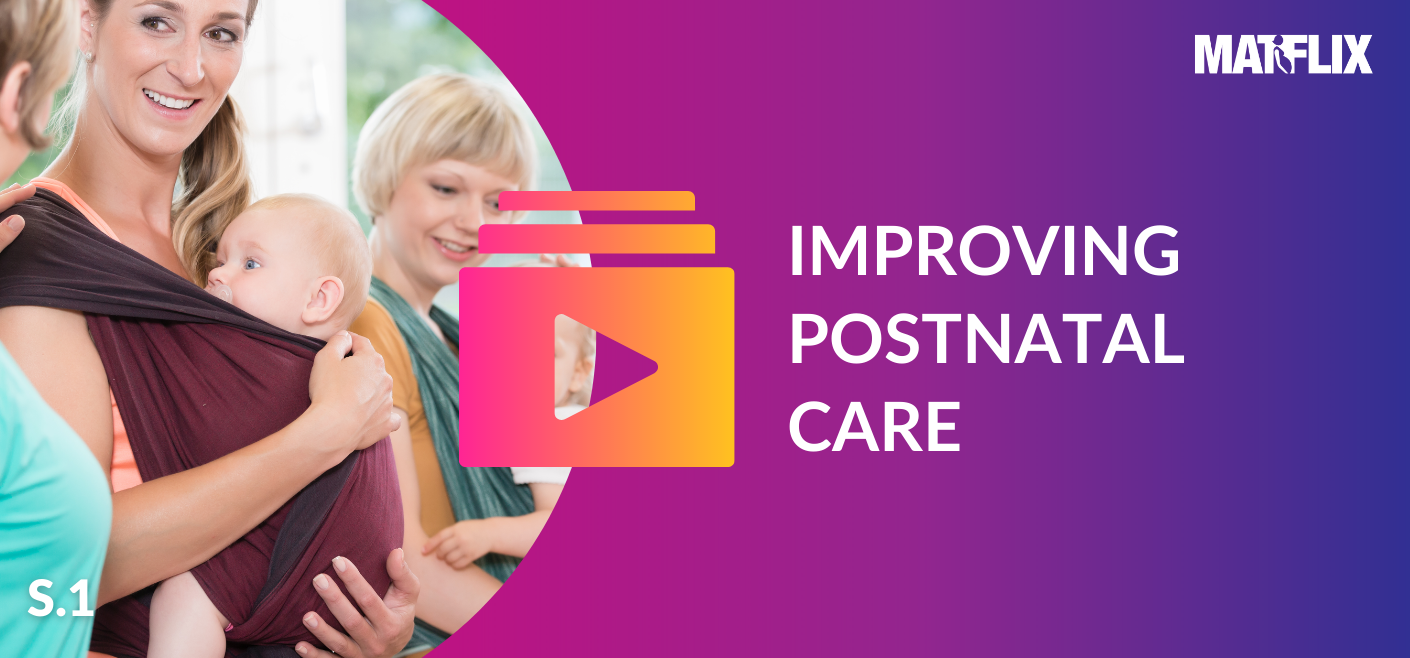Improving Postnatal Care
5 Talks

5 Talks
Postnatal care is often dubbed the ‘Cinderella service’, with poor investment and focus on this part of the childbirth continuum. However, this is a time of particularly vulnerability and importance in family-wide wellbeing. This boxset discusses the challenges within postnatal care and suggests quality improvement projects to increase positive experiences and wellbeing for women, their partners and neonates.

Contemporary Postnatal Care
2020 | 34 mins | Improving Postnatal Care
75% deaths occur postnatally, yet postnatal care remains the Cinderella service of maternity care. In this talk, Helen Cheyne, Professor of Maternal and Child Health Research, discusses the current challenges of postnatal care, and explores some solutions to improve service provision. Qualitative evidence demonstrates both mothers and midwives feel that postnatal support was not appropriate to needs, with midwifery time taken up with documentation, admission and discharges. Helen goes on to explore the impact of the COVID-19 pandemic on postnatal care. She concludes with a discussion of contemporary policy and service needs, alongside personalised and person-focussed care.
Helen Cheyne, Professor of Maternal and Child Health Research & RCM Profession of Midwifery Research, University of Stirling

Evaluation of a midwife led early postpartum family planning service
2019 | 22 mins | Improving Postnatal Care
National recommendations state that maternity care should be inclusive of contraception, due to the increased risks surrounding shortly spaced pregnancies. However, midwives are not adequately educated, leaving the responsibility to women to seek out contraceptive care postnatally. This talk discusses the introduction of a midwifery-led service to offer conceptive advice and prescription across the perinatal period. Consultant midwife, Judith Cutter, goes on to explore the differences between demographics in uptake and the barriers to providing contraceptive support postnatally. She concludes by discussing the future aims of the project.
Judith Cutter, Consultant Midwife, Cardiff & Vale University Health Board

Evaluation of Ireland’s First Postnatal Morbidity Clinic: ‘The Poppy Clinic’
2020 | 16 mins | Improving Postnatal Care
Postnatal care has often been dubbed the ‘Cinderella’ service of childbirth. Yet postnatal morbidity has a wide-reaching impact, including a domino effect into family-centred health. Without a formal postnatal follow-up, including for those with morbidities, a quarter of women accessing emergency healthcare were postnatal. In this talk, Advanced Midwife Practitioner, Caroline Brophy discusses the Poppy Clinic. This MDT outpatient service aims to combat postnatal morbidity for those who experiencing a medical, surgical or obstetric problem. Caroline discusses the structure, challenges and outcomes of the service, concluding with an overview of the learning and next steps for the clinic, focussing on the most vulnerable service-users.
Caroline Brophy, Advanced Midwife Practitioner, National Maternity Hospital

Challenges in Postnatal care requirements in the hospital setting
2022 | 19 mins | Improving Postnatal Care
Modern postnatal care is synonymous with increased needs. In this talk, Lucille Sheehy, Clinical Practice Development Co-Ordinator at the National Maternity Hospital in Ireland discusses their cross-sectional study to assess postnatal ward workload requirements and recommend how these can be met. Focussing on the focus groups including healthcare assistants and registered midwives, Lucille discusses the themes of the challenges surrounding woman-centred care, evolving roles and postnatal wards in 2020. She explored the changing expectations and increasing complexity of postnatal care. Lucille concludes with recommendations to improve ward-based postnatal care, including a review of roles and assessment of acuity.
Lucille Sheehy, Clinical Practice Development Co-Ordinator, National Maternity Hospital

Quality Improvement Collaborative Project Proposal: unexpected neonatal collapse on delivery suite and postnatal wards
2015 | 26 mins | Improving Postnatal Care
Kade Mondeh describes the merger of three Trusts in London and the subsequent need to develop policy around dealing with sudden unexpected postnatal collapse of a neonate. The background and scope process behind the project is described. An audit of the pilot of the project is presented along with ways the project was managed, including implementation of NEWS charts. Outcomes of the project are discussed.
Kade Mondeh, Project Lead, Practice Development Lead, Midwife/Supervisor of Midwives, Barts Health NHS Trust
United Kingdom and Republic of Ireland | Registration Number 8390093.
Copyright © 2024 MATFLIX